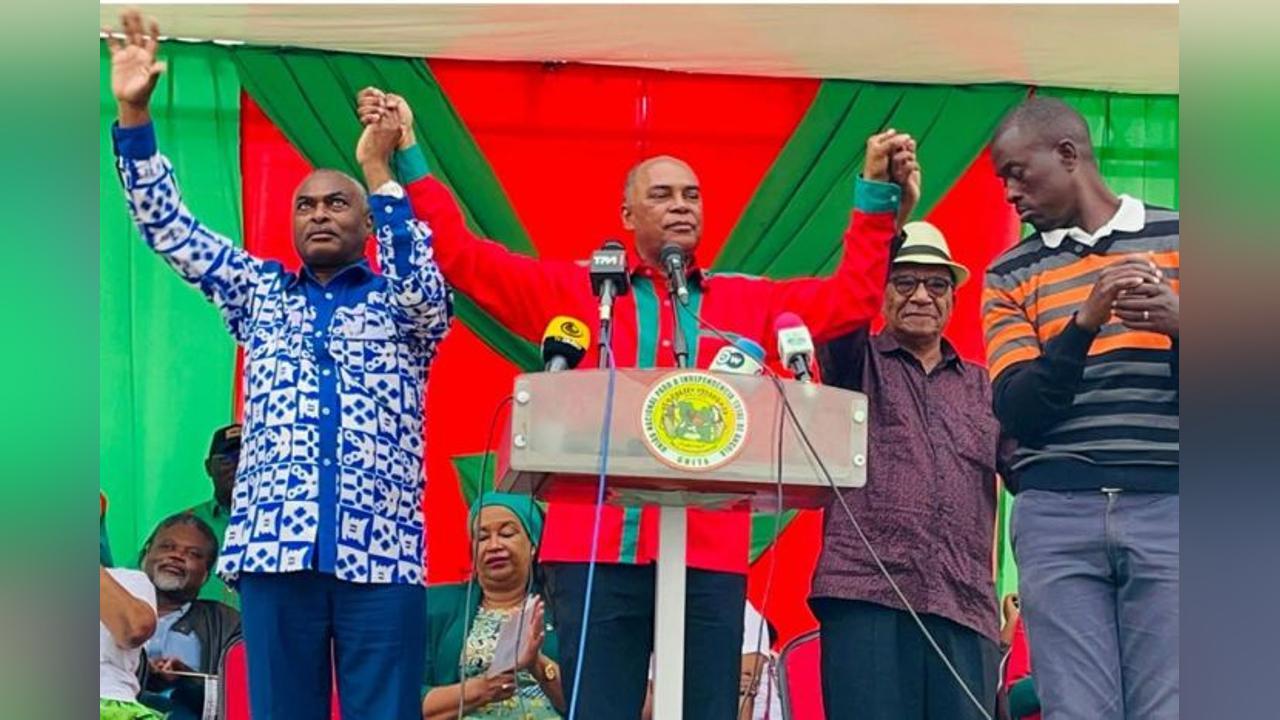Africa-Press – Angola. Militants and supporters of UNITA and PRA-JA Servir Angola have been engaged in a battle of accusations on social media. Analysts told DW that the MPLA is the one benefiting and that the FPU is “weakened.”
Attacks between followers of Abel Chivukuvuku, coordinator of PRA-JA Servir Angola; and Adalberto Costa Júnior, leader of the National Union for the Total Independence of Angola (UNITA), have intensified in recent times on social media.
PRA-JA members believe that the largest opposition party fears losing its position as the second largest political force in Angola, similar to what happened in Mozambique. UNITA activists accuse Chivukuvuku’s party of having negotiated with the Popular Movement for the Liberation of Angola (MPLA) for its legalization.
In an interview with DW, Angolan journalist Ilídio Manuel says that this fight of words is “something that became clearer from the moment Abel Chivukuvuku’s party was legalized.”
PRA-JA Servir Angola was legalized in October 2024. The leaders are not commenting on the matter for now.
Political scientist Eurico Gonçalves understands that this cleavage between activists, friends and supporters of the two parties is linked to what he calls “political-party migration”.
“It is measured in political science by the number of times a politician moves from one party to another,” he adds. And there are many such numbers that have been recorded throughout Angola’s recent political history.
In 2012, for example, politician Abel Chivukuvuku left UNITA with more than two hundred followers to found the Broad Convergence for the Salvation of Angola – Electoral Coalition (CASA-CE).
“And this has repercussions from a political and social point of view”, considers Eurico Gonçalves.
Ilídio Manuel already notes that there are “signs that PRA-JA will compete in the 2027 elections in isolation”.
And who profits from this alleged lack of unity in the opposition?
“The MPLA is clearly the one who benefits from these struggles within the FPU, because it can reap dividends from this, since the opposition, which in the last elections obtained a considerable number of seats – reducing the MPLA’s qualified majority, could now be in a weakened situation if the two largest opposition parties, in this case, UNITA and PRA-JA, compete separately”, predicts Ilídio Manuel.
“Weakened” FPU
Due to these struggles and other situations, Eurico Gonçalves says that the United Patriotic Front (FPU) is “weakened and vulnerable” and presents “uncertainties”.
“Without a clear direction and with countless uncertainties as to whether it will be a coalition of political parties, whether it will be a political-social platform or whether it will be extinguished before the 2027 elections.”
Faced with this reality, Ilídio Manuel calls for unity among the Angolan opposition, with a view to the upcoming political challenges.
“Because I don’t believe that they alone can fight the MPLA, which, as we know, is a state party. It is a party that uses all the resources of the state to stay in power,” he says.
For More News And Analysis About Angola Follow Africa-Press






